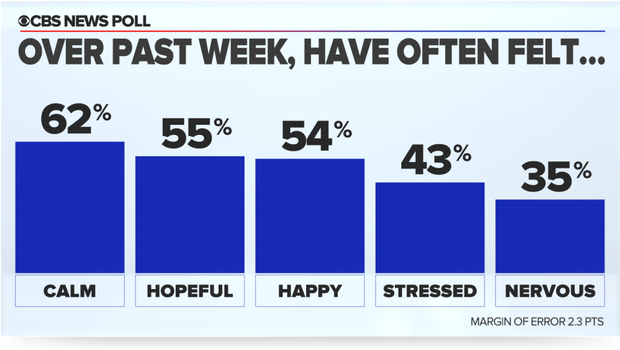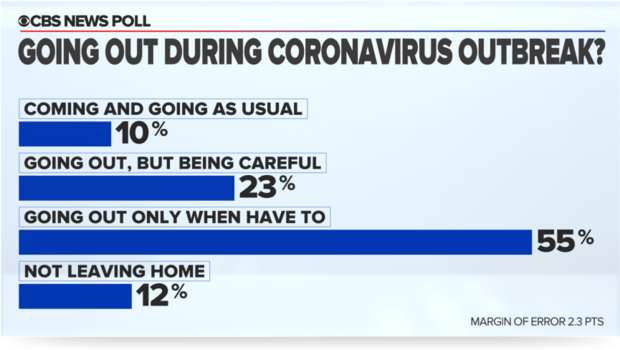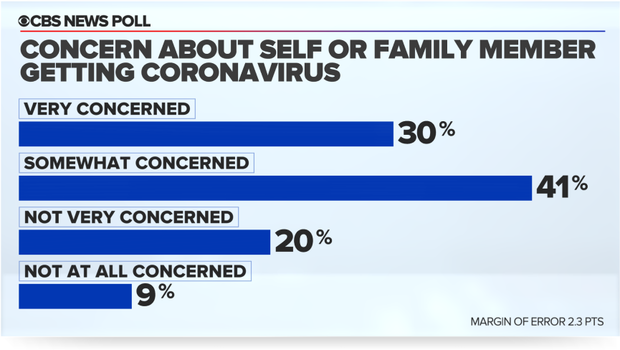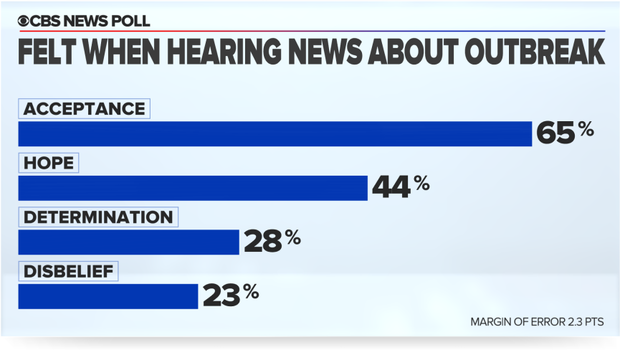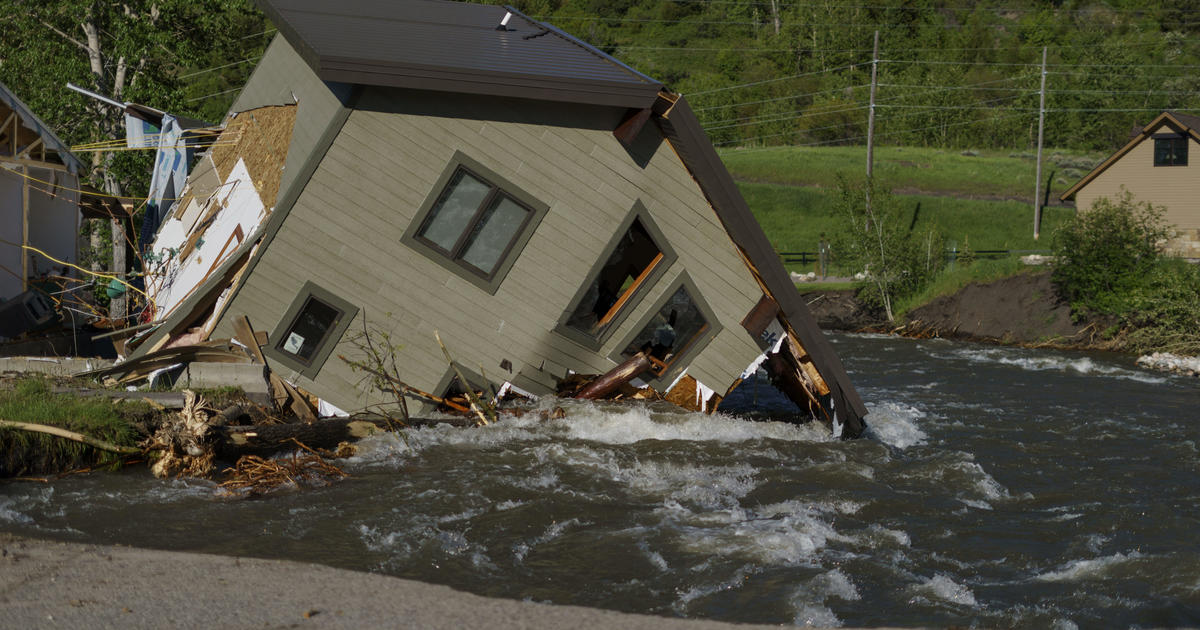With Americans in lockdown, hope and calm beat nervousness — CBS News poll
Amid the coronavirus outbreak, the personal has become national: the more danger you think you and your family are in from the virus, the more trouble you think the country is in, too.
Americans report staying calm and hopeful most of the time amid the outbreak, punctuated with feelings of nervousness and stress — especially for those who aren't going out, and particularly for those concerned they'll get the virus themselves. Few feel lonely often, even among those not leaving the house, and most remain optimistic that their fellow Americans will take steps needed to stop the spread.
Life has certainly changed for most, too: they're only going out when they absolutely have to, or staying in entirely, and only 10% say they're generally living their lives as normal.
Yet, past those broad measures, we find stark splits in outlook and the perceived severity of the pandemic, strongly related to how much danger people think they're personally in. People who are very worried about themselves or their family getting the virus are much more likely to call this a crisis for the nation as a whole — 77% of those very concerned say the nation is in crisis, while just 26% of those not very concerned about getting it agree. The most concerned also believe that someday we'll look back on this pandemic as a "defining event that changed the country and a generation forever." But to those less concerned with getting the virus themselves, this is just one of many challenges the U.S. faces.
When we asked people about the range of emotions they might've felt over the last week, a sizeable four in 10 reported feeling stressed often, and that was highest among those who report not leaving home, with half of them feeling that way often. Of those only going out when they have to, many are stressed and a third are also nervous often. But overall, people reported feeling calm (62%) and hopeful (55%) more often than negative emotions — including among many who are staying in.
Seven in 10 Americans express at least some concern that they or a close family member will get the virus. Concern and making life adjustments understandably go hand-in-hand, but age also separates those making adjustments from those who aren't. Older Americans are going out less, while four in 10 of those who are under age 30 say they are either still going out — though being careful when they do — or coming and going as usual. Among those 45+ in age, two thirds are optimistic about Americans' ability to do what's needed to stop the spread of the virus, while those under 45 are more evenly split between optimism and pessimism.
Partisanship is less of a factor separating behavior — most Republicans report they're staying in more, as do most Democrats — but partisanship does separate outlook about the prospects for the country and for oneself. More Democrats (42%) are very concerned they'll get the virus than Republicans (22%). (Democrats are also more likely to report they live in cities.) A four-in-10 plurality of Republicans say they're somewhat concerned. Democrats are also more than twice as likely as Republicans to say it is a crisis for the nation.
Perhaps related, Democrats are more likely to report feeling nervous and stressed over the last week. And while both groups are more optimistic than pessimistic that Americans will do what it takes to stop the spread, Republicans are more likely than Democrats to be optimistic (76% vs. 53%).
There are also differences by educational attainment in how Americans describe the situation. Those with college degrees and post-graduate degrees are more likely to call it a crisis than those without.
So, what are people doing while staying in? Overall, over a third say they're watching the news more than they used to, which rises to 40% among those mostly staying in. They also say they're watching more movies and entertainment than they used to, and three in 10 say they're talking to friends and family more than they used to as well.
We also asked people to describe their feelings recently when they've been hearing or reading the news about the outbreak. Two-thirds reported having felt acceptance that it was happening and trying to do what they could to stay safe, and a quarter described determination to fight it. Fewer reporting having felt angry it happened, or disbelief that it did.
This CBS News survey was conducted by YouGov using a nationally representative sample of 2,190 U.S. residents interviewed between March 21-23, 2020. This sample was weighted according to gender, age, race and education based on the American Community Survey, conducted by the U.S. Bureau of the Census, as well as 2016 presidential vote and registration status. The margin of error is +/- 2.3 points.
